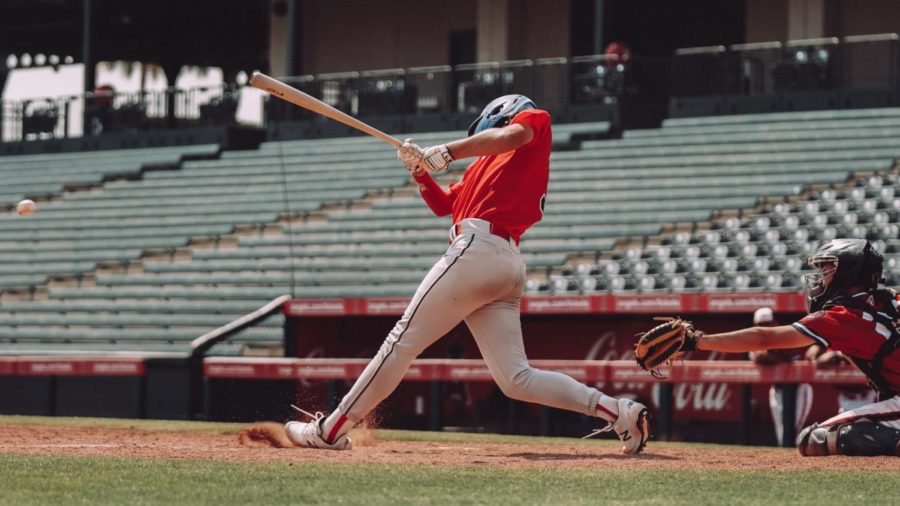Markfield: The Minor Leagues are unionizing. What’s next?
Baseball players must dedicate their whole lives to the sport in order to make it.
September 14, 2022
The renewed American labor movement continues apace. Since the last time I wrote about unionization in a column, there has been some newsworthy progress. Apple retail workers won an unprecedented union, Amazon workers won their elections and railway workers subjected to punishing hours and on-call conditions are gearing up for a mass strike within the next few days.
The Great Resignation and its effects on white-collar America have garnered most of the attention of legacy institutions and consternating writers — which speaks to a certain type of media elitism, considering that Wirecutter and The Atlantic have unionized to little mainstream reception or commentary — but retail and logistics have been the places where life-changing representation has been fought for and won in recent years.
Now, another massive domino has fallen: less than two years after 40 teams were cut, more than 50% of Minor League Baseball players signed union cards. The Major League Baseball Player’s Association (MLBPA) will represent them in collective bargaining.
This means that thousands of Minor Leaguers are now going to be joining the MLBPA and given representation for the issues that plague them most: unsustainable wages — even after a recent increase, which is still far behind the minor league salaries in basketball or hockey – lack of access to nutrition, travel arrangements and more.
Major League Baseball and its constituent owners have, through Commissioner Rob Manfred, stated that they are prepared to voluntarily recognize the union’s expansion, though this does not always ensure good-faith negotiations.
However, with the sport catching eyes from a displeased Congress — including Iowa Sen. Chuck Grassley — general dislike of owners and Manfred and a class-action suit against the clubs, disputing the union’s recognition was likely an unnecessary risk. Instead, the coming negotiations will probably be quite tense, especially following the recent lockout.
The exact scope and scale of this larger MLBPA is yet to be determined, as is the role of organizations like Advocates for Minor Leaguers, a nonprofit which advises and advocates for players. What can be known for sure is that this is undoubtedly a victory for the players.
As the “baseball is dying” conversation evolves, with detractors bemoaning pace of play, under-marketed stars and the scheduling format, the actual necrosis is at the foundations. Minor leaguers are not being materially supported by their major league clubs enough to survive.
Trevor Hildenberger, a 31-year-old player with just under a full season’s worth of Major League games over his career, told The Athletic’s senior writer Evan Drellich that he had seen teammates sleep in their cars or the team clubhouse, among other problems like not being able to afford rent or gas. Those experiences are a deeply unfortunate fact of life for all too many Americans, especially in a time with increasing costs of living and wealth inequality.
Major League Baseball, however, is making more money than ever. Not reinvesting it into the players without whom the sport wouldn’t exist is tragic, and the actions of the owners may lead to their antitrust exemption from 1922 being revoked.
That the owners, who always talk about keen investment of resources, do not see hundreds of their own players as worth supporting forces one to question the integrity of those owners and the commissioner that would not pay their minor leaguers even a living wage until push came to shove. Not that they endured a lot of good will before, but skepticism around sports owners has sharply increased of late as doubts have arisen about the benefits of concentrated wealth in American society.
On the other side, for the players, overcoming decades of anti-union sentiment is admirable. Taking back some determination over their lives and conditions is a worthy task, and whatever comes out of the upcoming negotiations, their willingness to risk their careers for the betterment of all involved is inspiring. Hopefully, their reward will be not just an improvement to the sport we all know and love, but that when they leave the field at night, they can come home to a life that properly reflects their labor.

















